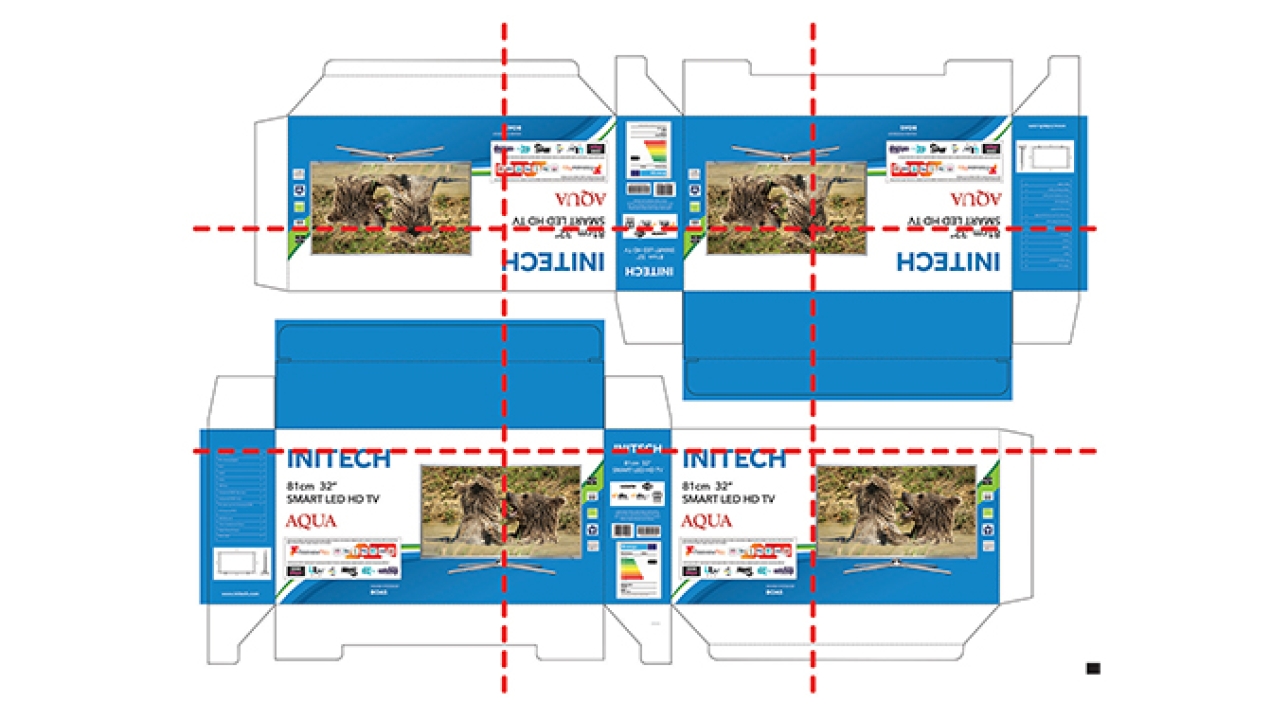Global Graphics Software releases new version of Harlequin
Global Graphics Software has released the new version of its Harlequin Host Renderer updated with new features, including automatic tiling for processing large scale output at high speed, and extended advanced inkjet screens, for enhanced image quality.

Version 13 of the Harlequin Host Renderer adds automatic tiling to maximize the throughput of huge PDF, TIFF and JPEG files such as those generated in the corrugated packaging, wide and grand format, décor and textile markets. Harlequin 13 automatically tiles these large pages up to 200 meters (650 feet) long - to split them across multiple RIPs for increased speed and improved load balancing.
Output is continuously streamed to the printer so that print service providers don’t have to wait for the entire page to be RIPped before printing can begin. This new feature minimizes RAM requirements and costs for a digital front end (DFE) processing very large output.
‘The new tiling feature is specifically for high-speed digital printing,’ said Martin Bailey, Global Graphics Software’s CTO. ‘Automatic tiling helps in maximizing throughput by splitting the output across several RIPs. It also reduces the cost for a DFE built to handle huge PDF pages, either every day or as an occasional occurrence, because the peak memory usage for a tile can be much lower than that for the whole page.
‘Speed continues to be a key focus of Harlequin development, because a faster RIP enables presses with very high data rates to be driven at engine speed and reduces the bill of materials for a digital front end (DFE) or controller.’
Version 13 also introduces direct printing of PNG files for consistent color management and halftone screening, enhanced controls over sizing of output from image file formats, extended advanced inkjet screens with the introduction of Opal and extended support for larger DFEs, scaling from a single RIP instance, through multiple RIPs on the same server, to multiple RIPs on each of multiple servers.
‘Harlequin Host Renderer has been powering our Cloudflow RIP now for more than five years,’ added Nick De Roeck, CTO of Hybrid Software. ‘Hybrid has a clear focus on the packaging and label market, both for digital and conventional printing. The HHR has given us the flexibility to add our packaging know-how on top of a super solid HHR product. I am very excited with the continued innovation on the product, and our customers will benefit greatly from this lucky version 13, as it RIPs even faster on packaging files, all the while reducing the amount of hardware resources required.’
Harlequin Host Renderer is supported on 32- and 64-bit Microsoft Windows, 64-bit Linux and Mac OS.
Stay up to date
Subscribe to the free Label News newsletter and receive the latest content every week. We'll never share your email address.

